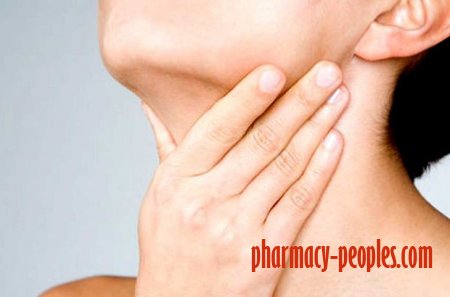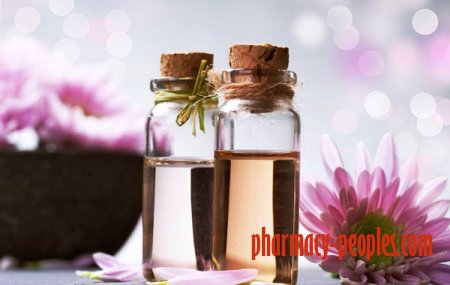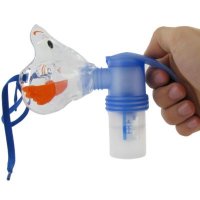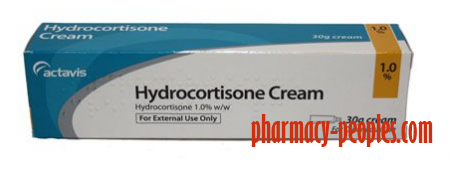HOW TO CURE LARYNGIYICS? HOW TO DO LARYNGITIS INHALATIONS?
How to cure laryngitis
Resting your vocal cords will help to stop them from developing more serious problems, such as bleeding or the formation of nodules, polyps or cysts. And as you give your voice a rest, try one or more of these soothing remedies.
Laryngitis home remedies
Drink at least 6-8 glasses of warm or lukewarm (not hot) water a day. Fluid keeps your larynx moist, which is critical for curing laryngitis.
Other warm liquids, such as chicken stock, can also help to ease the discomfort of a sore throat.
Horehound, a hairy-leaved member of the mint family, has long been used in proprietary cough sweets. You can purchase the liquid extract from a medical herbalist - take as directed.
Mullein (or Aaron's rod) contains gelatinous mucilage, which soothes irritated tissues. To make mullein tea, use 1-2 teaspoons of the dried herb for each mug of boiling water, steep for 10 minutes, strain and drink. Drink 1-3 cups a day. Mullein is generally available from health food shops or online.
Another herb that has a soothing and healing effect on laryngitis is slippery elm. Due to its high mucilage content, this is a good emollient for the mucous membranes at the back of the throat. Mix 1 teaspoon powdered extract in a mug of warm water. Stir well and sip slowly, holding the mixture at the back of your throat for as long as possible before swallowing.
An old folk remedy for laryngitis is to drink a mixture of 2 teaspoons onion juice followed by a ‘chaser’ of 1 teaspoon honey. Take every 3 hours. If you don't have a juicer, squeeze half an onion between 2 plates and collect the juice that way.
Another remedy involves mixing up a tablespoon of honey with some lemon juice and a pinch of cayenne pepper. Sip the mixture and repeat as often as necessary.
Inflammation of the mucous membrane of the larynx is due to its irritation or the result of colds and infectious diseases. The causes of laryngitis include: hypothermia, too cold inhaled air, the addiction to Smoking. There are also professional laryngitis. This disease is inherent in those who by occupation must daily to overtax the vocal cords: teachers, speakers, singers, artists conversational genre. Workers working in hazardous industries and breathing in dusty and dirty air are also subject to professional laryngitis.
Symptoms are: dry mouth and throat, swelling of the mucous membranes of the throat, tickling in the larynx, the appearance of dry cough, no voice. Inhalation laryngitis give the opportunity to reduce the inflammation, ease the breathing process, helps to regenerate the mucosa of the throat and promote the flow of phlegm. This can be explained by the fact that when the procedure is settling treatment solutions on the vocal cords. The formed film protects the throat and cords from the influence of cool air and other irritants. Often suffering from laryngitis to ask what inhalation give greater effect.
THE TYPES AND NATURE OF INHALATION
Inhalation laryngitis conventionally divided:
temperature - cold (the cure with a room temperature) and hot (inhaled medication is preheated to a temperature of not less than 30oC);
the method of obtaining the drug substance: steam (wet or dry) and hardware (nebulizers, inhalers).
Cold inhalation laryngitis refers to the use of aerosols and sprays with medicinal ingredients, enhanced with herbal extracts and aromatic oils. They were appointed only by a physician and are part of therapy, consisting of antibiotics, antiviral drugs, a warm drink and other types of inhalation. Such inhalations can not be applied in the presence of bronchial asthma, pregnancy and during breast-feeding.
Hot wet methods include steam inhalation which can be done by various methods. The most affordable way to breathe over a hot kettle orpan.
For inhalation usually use decoctions of herbs: chamomile, peppermint, sage, eucalyptus leaves, pine buds, mother and stepmother, St. John's wort and others.
In the present within half an hour the decoction is poured boiling water and poured into a smaller container. Covered with a towel, proceed to inhalation. The breathing should be smooth, should not be too deep breaths so as not to burn the mucous membrane of the larynx.
The positive effect of inhalation using sea salt and baking soda. Alkaline inhalations with the use of soda to facilitate the course of the disease. To perform such a procedure should be not more than eight minutes. Instead of plain water it is possible to use mineral water ("Borzhomi", "Narzan", "Essentuki"). It is known that treatment with alkaline solutions it helps when other expectorants do not work. The use of soda solutions leading to reduce swelling of the mucous membrane of the throat, cough reflex with copious sputum aktiviziruyutsya. To do inhalation to two times a day.
If no allergic reactions, it is possible to spend inhalations with essential oils (pine, cedar, eucalyptus, juniper). But to add to the capacity, you only need a few drops in a glass of water. The disadvantages of steam treatments can be attributed to the inability to accurately control steam temperature: it must not burn the mucosa of the throat. It is therefore necessary to use a paper cone, its length depends on the temperature of the steam.
HARDWARE METHODS OF INHALATION
Today in pharmacies and specialized stores you can easily purchase the devices for carrying out steam inhalation. With their help, the treatment procedure is much easier. One such device is a nebulizer (ultrasonic nebulizer). The device generates vapor, with a room temperature. In the composition there is no need for treatment of drug (antibiotic, antiseptic, antifungal) and saline. This aerosol condenseries directly on the walls of the larynx and on the surface of the vocal cords of the sick person. Thus, the drug acts directly on the center of the inflammatory process.
To date, the inhalation nebulizer is carried out both in the hospital and at home. Nebulizers are of three types:
ultrasonic;
compressor;
mesh nebulizers (membrane).
laryngitis">ultrasonic Nebulizers of the type used mainly in stationary conditions. Education medical aerosol of liquid medicine takes place under the influence of ultrasonic waves. However, the ultrasound breaks down the drug (hormone, antibiotic). It is not possible to use them for inhalation.
Compressor nebulizers, squeezing the air in the dedicated chamber, turn liquid medicines in therapeutic pairs. The structure of the drug is not broken. This gives you the opportunity to use all suitable for this device medicines. Large dimensions of the device and a lot of noise, frightening the little patients, is the lack of it.
The third type of nebulizer (mesh-inhalers) combines the best quality of compressor and ultrasonic inhalers. The principle of operation is the fluctuation of a special membrane under the influence of ultrasonic waves of lower frequency. In the process, they don't make noise, have a small size, do not cause degradation of the drug. The only, but significant drawback - high price.
the procedure is performed sitting, the unit must stand upright;
during inhalation it is necessary to observe silence;
to start the procedure not later than six hours after a meal;
smoke before inhalation and after it is strictly prohibited;
after inhalation not to go out, not eat or talk for hours;
if sore throat is to inhale and exhale medication by mouth, while in the special mask;
to use medications are not expired;
dilute the preparation with physiological solution in the ratio of one to two or one to three;
the duration of inhalation of not more than ten minutes;
when used for inhalation hormones or antibiotics, after her rinse mouth with water;
after inhalation, the device is washed with distilled water and wipe dry;
the course of treatment is from five to ten procedures;
the nebulizers were prohibited from using essential oils, decoctions and infusions of herbs.
Steam treatments for laryngitis
Inhale steam from a bowl of hot water for 5 minutes, 2 to 4 times a day. To help trap the steam, drape a towel over your head to form a tent and breathe in deeply. The steam will help to restore lost moisture in your throat and accelerate healing. Make sure you set the bowl on a sturdy table and don't lean too close to the surface, to avoid getting scalded.
For a more powerful healing inhalation, add 4-6 drops antiseptic and anti-inflammatory essential oils, such as lavender, sandalwood or camomile, to the hot water.
Make a hot compress using mullein, sage, thyme or hyssop tea. Apply the compress to your throat, then wrap a dry towel around your neck to keep the heat in.
THE USE OF PREDNISONE AND HYDROCORTISONE
Drugs prednisolone and hydrocortisone are characterized by anti-inflammatory, anti-allergic and anti-shock properties. These drugs in the treatment of laryngitis is used to slow the inflammatory processes, resorption of oedema of the larynx and to liquefy the phlegm. The drugs belong to the group of hormones.
To relieve symptoms of acutelaryngitis doctors recommend inhalation with prednisone. You need to hold them in the first seventy-two hours. If the General condition is improved, the procedure stops. In the treatment of laryngitis doctors use hydrocortisone in two forms: the infusion in the throat, using a special syringe, and inhalation. Inhalation with hydrocortisone is an effective way of dealing with the disease. Resorted to them when the disease acquires a chronic form, and is used in combination with antibiotics. Treatment using hydrocortisone in capsules, the dosage should not exceed twenty to thirty grams a day.
A contraindication may be individual intolerance to one of the components of medicines; a patient of diabetes, tuberculosis, stomach ulcers.
Gently apply with heart diseases, renal failure, during pregnancy and breastfeeding, and after sixty years.
Stopping laryngitis before it starts
Breathe through your nose. Your nasal passages are natural humidifiers. Mouth breathing, on the other hand, exposes the voice box to dry, cold air.
Use a humidifier in your bedroom, or stand a bowl of water on the radiator. Your vocal cords are lined with mucosa that needs to be kept moist in order to repel irritants.
When you travel by air, chew gum or suck lozenges. The cabin air is excessively dry and your vocal cords suffer. If you keep your mouth closed and increase saliva production, you help to prevent dehydration.
Another trick when flying is to hold a wet cloth over your nose and mouth periodically to moisten the air passing through your airways.
Certain drugs, including blood pressure and thyroid medications and antihistamines, can be very drying to your throat, so check with your doctor.
If you smoke, quit. It's a major cause of throat dryness. And avoid smoky bars, clubs and parties.








